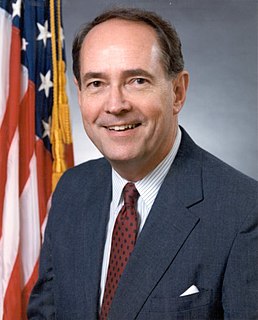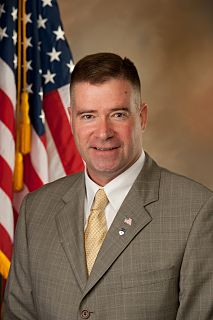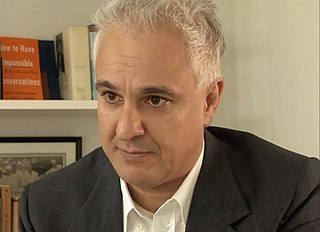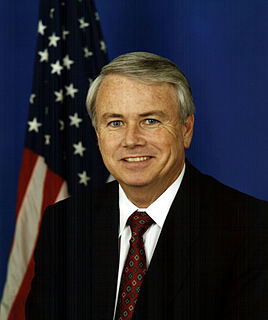A Quote by Ted Cruz
One of the specific powers and responsibilities of the federal government is to secure the borders. Property can be taken with due process of law and just compensation.
Related Quotes
The specific question was visa overstays.Current federal law requires a biometric exit-entry system when you come in on a visa. And the [Barack] Obama administration is just ignoring federal law. Forty percent of illegal immigration is not people who cross the borders illegally. It's people who come legally on a visa and never leave.
The civil forfeiture law - if something so devoid of due process can be dignified as law - is an incentive for perverse behavior: Predatory government agencies get to pocket the proceeds from property they seize from Americans without even charging them with, let alone convicting them of, crimes. Criminals are treated better than this because they lose the fruits of their criminality only after being convicted.
What was to be a relatively innocuous federal government, operating from a defined enumeration of specific grants of power, has become an ever-present and unaccountable force. It is the nation’s largest creditor, debtor, lender, employer, consumer, contractor, grantor, property owner, tenant, insurer, health-care provider, and pension guarantor. Moreover, with aggrandized police powers, what it does not control directly it bans or mandates by regulation.
Until the 1930s, the Constitution served as a major constraint on federal economic interventionism. The government's powers were understood to be just as the framers intended: few and explicitly enumerated in our founding document and its amendments. Search the Constitution as long as you like, and you will find no specific authority conveyed for the government to spend money on global-warming research, urban mass transit, food stamps, unemployment insurance, Medicaid, or countless other items in the stimulus package and, even without it, in the regular federal budget.
There are people who oppose a federal Constitutional amendment because they think that the law of family should be made by the states. I can see a legitimate argument there. I think it's mistaken, however, because the federal government, through the decisions of life-tenured federal judges, has already taken over that area.
Liberalism is a creation of the seventeenth century, fathered by British philosopher John Locke (1632-1704). For Locke, liberalism means limited government, the rule of law, due process, liberty, freedom of religion, freedom of speech, freedom of the press, freedom of assembly, separation of church and state, and separation of government powers into branches that oversee each other's authority.
Some have argued that the President is required to get permission from a federal court before taking action against a United States citizen who is a senior operational leader of al Qaeda or associated forces. This is simply not accurate. 'Due process' and 'judicial process' are not one and the same, particularly when it comes to national security. The Constitution guarantees due process, not judicial process.
The proposed constitution, therefore, even when tested by the rules laid down by its antagonists, is, in strictness, neither a national nor a federal constitution; but a composition of both. In its foundation it is federal, not national; in the sources from which the ordinary powers of the government are drawn, it is partly federal, and partly national; in the operation of these powers, it is national, not federal; in the extent of them again, it is federal, not national; and finally, in the authoritative mode of introducing amendments, it is neither wholly federal, nor wholly national.
The tenth amendment said the federal government is supposed to only have powers that were explicitly given in the Constitution. I think the federal government's gone way beyond that. The Constitution never said that you could have a Federal Reserve that would have $2.8 trillion in assets. We've gotten out of control.
Every day, IRS agents levy liens on homes, bank accounts, and businesses; they confiscate cars, furniture, boats, and other personal property without the constitutional protections of due notice, hearing, and due process. If a person forcibly resists, government agents kill him for resisting arrest.

































